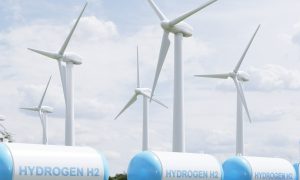EverWind lands CAD$22.5m to build green hydrogen export infrastructure in Nova Scotia

EverWind Fuels has received CAD $22.5 million from Transport Canada’s Green Shipping Corridor Fund to enhance port infrastructure at its Point Tupper project in Nova Scotia. This funding will support upgrades for green hydrogen export, including installing green ammonia handling and pipeline systems. The project, slated to start production in 2026, aims to supply 240,000 tonnes of green ammonia annually to Europe, with an agreement to export to the Port of Rotterdam. This aligns with Canada’s initiatives to become a key hydrogen supplier for Europe.
EverWind Fuels has been awarded CAD $22.5m ($16.2m) in funding to support marine and port infrastructure developments for the export of green hydrogen from its Point Tupper project in Nova Scotia, Canada.
Supplied through Transport Canada’s Green Shipping Corridor Fund, the investment will be used to enhance existing marine terminal infrastructure to handle green fuels, the installation of a green ammonia loading arm, and the development of green ammonia pipelines.
The project, which plans to produce 240,000 tonnes of green ammonia per year in its first phase, is expected to start production in 2026 to export the hydrogen carrier to Europe.
Having already signed an agreement with the Port of Rotterdam to see the Dutch port import its green hydrogen, the investment is hoped to accelerate the development of the Point Tupper project.
“This announcement reflects the Government of Canada’s bold commitment to position Nova Scotia as a green energy shipping hub and a global leader in reducing emissions from the transportation sectors,” said EverWind founder and CEO, Trent Vichie.
It comes as Canada looks to strengthen its position as a hydrogen supplier to regions like Europe.
In August, Canada and Germany committed a combined €400m to host a hydrogen import auction through Germany’s H2Global initiative, where Canadian hydrogen would be purchased at full price before resale to offtakers at lower costs.
It builds off the Canada-Germany Hydrogen Alliance, signed in 2022, to see Canada meet large portions of the European nation’s green hydrogen demand.

















